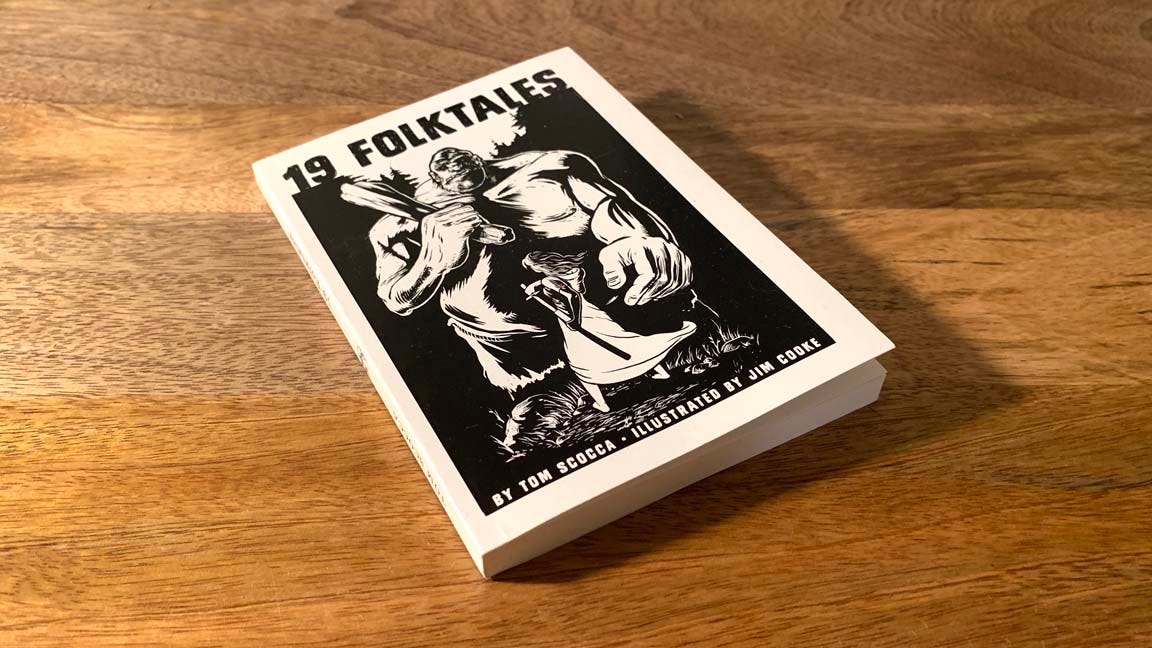"Make America Florida" Is Hilarious Unless It Happens
IT'S FUNNY, RIGHT now, that Ron DeSantis is trying to run for president. A year ago, as an undeclared and prospective candidate, he looked like a serious figure—a big-state Republican governor who might offer voters a capable alternative to the shambling chaos of Donald Trump. This week, in a glitchy Twitter Spaces session with Elon Musk, he completed his slow, public transformation from a theoretical type of candidate to a genuinely existing candidate. Specifically, he's a candidate who genuinely exists as a bumbling clown.
As a governor, DeSantis runs his state with the flamboyant vindictiveness of an internet comments section. As a political operator, he reportedly acts obtuse and chilly toward donors and potential allies. As a public campaigner, he behaves in alarming and uncanny ways. As a would-be competitor to Trump's circus act, so far, he profiles out as tender raw meat for the tiger show.
National Review editor in chief Rich Lowry, trying to put a positive spin on DeSantis' outlook in an opinion piece for the New York Times, came up with this:
In the weeks ahead he could well change the narrative of the 2024 Republican nomination fight from “Trump is burying DeSantis” to “He’s still kicking, despite Trump doing everything he can to bury him.”
The "could" was a particularly poignant touch: it's possible, if you try, to imagine DeSantis fighting his way from losing badly to Trump to still losing to Trump, but less badly. Lowry went on to lay out a multi-point plan by which DeSantis could improve as a candidate, including "post a big fund-raising number out of the gate"; sell his "personal narrative" to the public ("his Yale baseball career, his military service during the war on terrorism, his wife’s fight against breast cancer or his life as a very busy father of three young children"); "plant his feet firmly on tricky issues"; "retain his hard edge on cultural issues"; and "attack Mr. Trump from the right."
Delightful as it is to picture Ron DeSantis trying to make sure Republican primary voters know about his Yale baseball career, all of this was not just wishful, but irrelevant. Trump has the voters DeSantis needs, and he has the charisma, cruelty, and brand recognition to keep them in a head-to-head contest. The idea that DeSantis can somehow pry the nomination away from Trump through tactically effective, National Review–coached politicking would be absurd even if the coaching weren't so bad (among Lowry's suggestions: DeSantis could score points against the inventor of the "Build the Wall" chant by pointing out the wall isn't built yet, or could pry abortion opponents away from the man who built the Dobbs court for them).
Here is where it feels invigorating, after a year of prefatory hype, to declare that Ron DeSantis can't possibly get elected president. The would-be redeemer of the Republican Party's mainstream electoral fortunes is a stiff, unlikable weirdo, so locked into his own unreality that he thought Twitter was the right place to launch his campaign. His slogan is a ripoff of the winning slogan of the guy he's trying to beat! He has the stink of the loser, and he's going to lose.
But Lowry's vision, and the story that went into DeSantis' buildup, was so fundamentally wrong that its wrongness doesn't matter. "Can DeSantis beat Donald Trump?" is not the real question. To ask it is to suppose that the path to the 2024 general election is a straight line.
The truth is that nobody—certainly not the people who make predictions or offer advice about elections—knows what's going to happen between now and November 2024. The theory of Ron DeSantis was born two years ago out of the hope or assumption that Trump would fade away, and that the voters would be ready for someone with a more conventional political profile. Neither Trump nor his voters obliged. He is the Republican frontrunner, and he is front-running on the platform that January 6 was the right thing to do, and that his victory will redeem the attack on the Capitol. CNN couldn't think of anything to do about this but give him a friendly town hall, with an eye to restarting the old 2016 Trump ratings machine.
But that doesn't guarantee Trump the nomination, either. He could be indicted on even more charges than the ones he's facing in New York—Georgia charges for trying to rig the election, federal charges for carrying off classified paper, who knows what else—and could spend primary season on trial. Nothing like this has ever happened in American electoral politics before, and no one knows how it would play out. He could call for armed insurrection, or drop dead from the strain, or win the primaries in a blowout and deliver his acceptance speech to the Republican National Convention over a jailhouse video call.
Ron DeSantis won't be the protagonist in any of this. But he has set himself up to be around for it all, one possibility in a cascade of possibilities. A panel of Times opinion-havers, asked to rate his strength as a candidate, clustered around listing him as still sort of strong-ish. Ross Douthat, the careful reactionary and disdainer of Trump, saw in DeSantis the possibility of brutishness redeemed:
The thing that many of his critics loathe most about DeSantis, his willingness to use political power directly in cultural conflicts, represents the necessary future of conservatism in America. The line between politics and culture is always a blur, and a faction that enjoys political power without cultural power can’t serve its own voters without looking for ways to bring those scales closer to a balance. There are good and bad ways to do this, and DeSantis’s record is a mixture of the two. But the project is a normal part of democratic politics, not an authoritarian betrayal.
Calling DeSantis' program of electoral and ideological purges the normal workings of democracy was typical Douthat-ian cynicism. What was sincere was the conservative pang of hunger for power—for earth movers to clear out the unsightly rubble of Trump's rampage through liberalism and make something hard and clean and level. The Twitter Spaces event was a risible failure, and Elon Musk's Twitter is a Nazi-haunted ruin of what Twitter was even six months ago, yet Musk is in charge, and DeSantis wanted to be there. DeSantis may be a joke at the moment. In certain versions of the future, though, he still represents an opportunity.
UPDATES DEP'T.
The Philharmonic Sounded Pretty Good Last Night
IN FEBRUARY, I wrote about how the acoustics in the New York Philharmonic's newly renovated David Geffen Hall seemed muffled and off-putting. Last night, we went to see Marin Alsop conduct the Philharmonic, and she got a totally different level of sound out of the building or the orchestra or both. It had to have helped that it was a wind-heavy program, built around Joseph Alessi playing Chick Corea's Concerto for Trombone, but the nagging sense of not quite being in the same room as the musicians was gone. Alessi's trombone carried smoothly and vividly to our rearward part of the side balcony, and Samuel Barber's Symphony No. 1 and selected suites from Prokofiev's Romeo and Juliet summoned a force I hadn't felt in the new hall before. The Montagues and the Capulets were palpably marching down the rows. The violins still weren't exactly reaching the heights of power, but Alsop made even the soft string parts come through clearly and precisely.
WEATHER REVIEWS
New York City, May 25, 2023
★★★★★ Moving leaves made the bedroom sunbeam flicker and tremble. Intricate arrangements of light played on the ceiling, and the cross-breeze pushed the door open when it was near shut. The blue was back to normal blue. Someone buffed the glass door of a renovated brownstone from the inside. High on an apartment tower's roofdeck, a string of hanging lights caught the sun so they flickered irregularly as they swayed. A woman walked down Amsterdam Avenue in a bulky sweater with a tall hot-drink cup in hand. A pigeon rowed through the afternoon air, wingtips bright as butter knives. A lump of red icee lay slowly melting on the corner by the school. In the park, two robins bashed into each other, fluttering breast to breast. At intermission of the orchestra, the sky was fading from blue to yellow, with gray streaks across it and one line of hot pink at the very bottom. The faintest layer of cloud spread an extra glow around the thickening crescent moon, and subtly marbled the sky with lighter and darker blues. The balcony railing was cool to lean against.
EASY LISTENING DEP’T.
SANDWICH RECIPES DEP’T.
WE PRESENT INSTRUCTIONS for the assembly of sandwiches from One Thousand Favorite Recipes, by Seattle, Washington’s Congregation Temple de Hirsch, Ladies' Auxiliary, compiled by Mrs. Sigismund Aronson and Mrs. William Gottstein, published in 1908, found in the public domain and available at archive.org for the delectation of all.
CHEESE SANDWICHES. One pound cheese, one teaspoon raw mustard, one yolk of egg, salt and red pepper to taste, three tablespoons vinegar, one tablespoon sweet oil, one tablespoon Worcestershire sauce. Cream all together with a fork and spread on bread or crackers. —MRS. I. E. MOSES.
CHEESE PASTE FOR SANDWICHES. One pound soft New York cheese, run through meat grinder. Mash with back of spoon; add salt, paprika, juice of a lemon, half teaspoon dry mustard, Worcestershire sauce, three tablespoons cream. Mash smoothly and spread between thin slices of buttered bread; then toast the sandwiches. —MRS. S. ARONSON.
If you decide to prepare and attempt to enjoy a sandwich inspired by this offering, kindly send a picture to us at indignity@indignity.net.
MARKETING DEP'T.
Thanks for reading INDIGNITY, a general-interest publication for a discerning and self-selected audience. We depend on your support!








